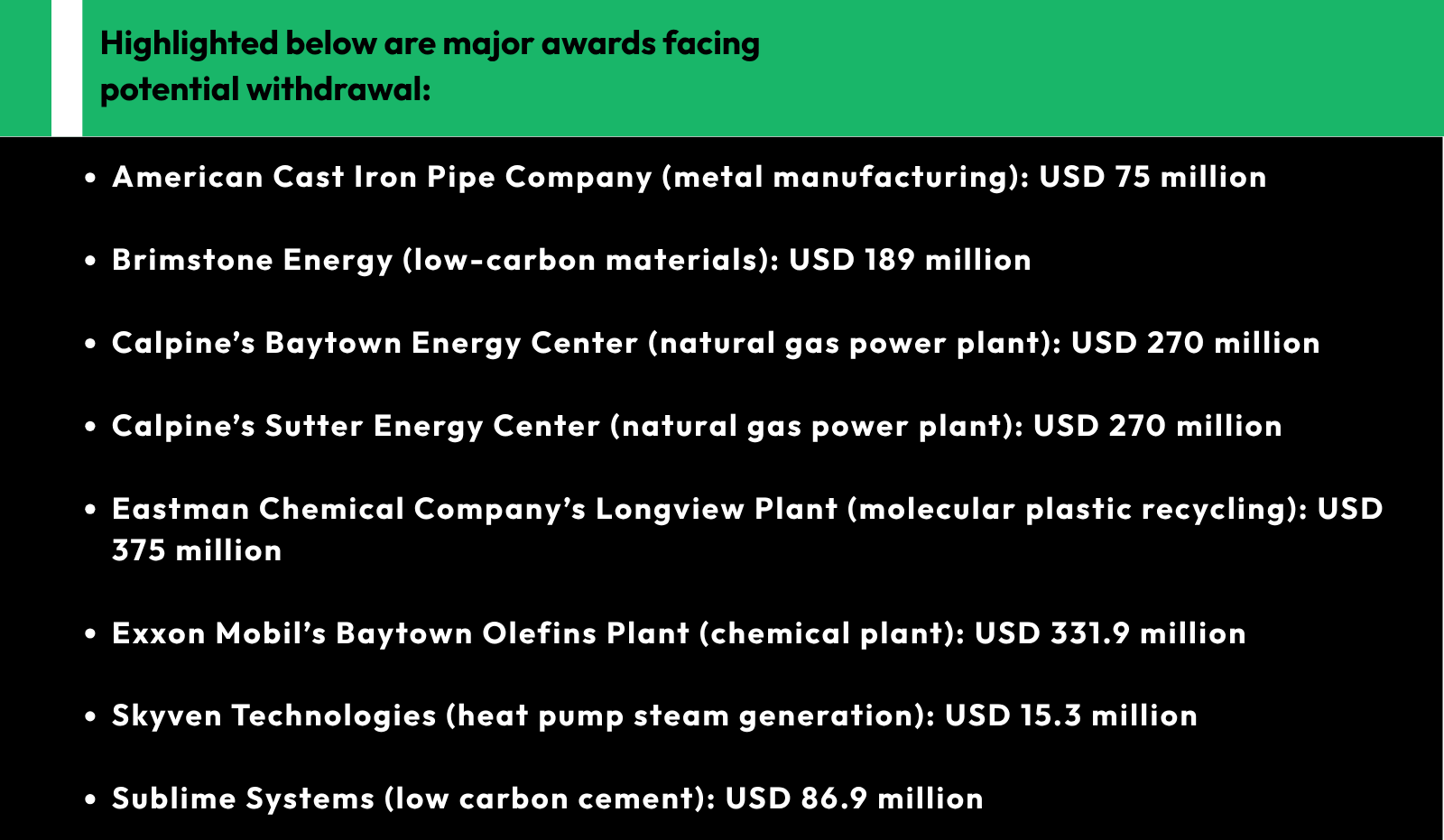

The Department of Energy has reversed its course, announcing the withdrawal of USD 3.7 billion in funding previously awarded to clean energy and manufacturing projects under the Biden administration.

Image credit: energy.gov
The decision affects 24 projects across sectors like advanced materials, industrial decarbonisation and chemical manufacturing. Recipients range from giants like Exxon Mobil and Kraft Heinz to startups like Skyven, Brimstone and Sublime Systems.
Brimstone Energy, also working on low-carbon cement and alumina production, responded with cautious optimism. The startup emphasised its alignment with national priorities, particularly around boosting domestic critical mineral output.
“Given our project’s strong alignment with President Trump’s priority to increase US production of critical minerals, we believe this was a misunderstanding,” Brimstone spokesperson Liza Darwin stated to TechCrunch.
She added, “As the first US-based alumina plant in a generation, our project, which would also make portland cement, would clear a ‘mine-to-metal’ path for US aluminium production, fortifying the U.S. critical mineral supply chain and creating thousands of jobs.”
Under the Trump administration, Energy Secretary Chris Wrights labelled the move “due diligence.” While specific project cancellations weren’t explained, a May 15 memo hints at expanded audit powers being used to justify the cuts.
With funding pulled, the future of these clean energy initiatives is uncertain, stalling innovation efforts aimed at reducing industrial emissions and modernising US manufacturing.

The sudden announcement has taken several recipients by surprise. Sublime Systems, a startup developing low-carbon cement, voiced its disappointment over the DOE’s decision.
“Sublime was surprised and disappointed to receive the news about the termination of our Industrial Demonstrations Program award, given the clear progress we’ve made in scaling our American-invented technology, partnering with some of the Western World’s largest cement producers, and generating a bankable customer base,” spokesperson Rob Kreis told TechCrunch via email. The company is now assessing its path forward.
This rollback marks a potential turning point in federal backing for industrial decarbonisation and clean energy manufacturing. As companies grapple with the abrupt shift, many are now left seeking clarity on the future of their projects and how to move forward in an uncertain policy landscape.
Responses








